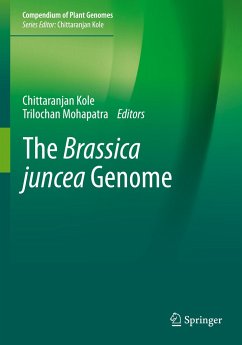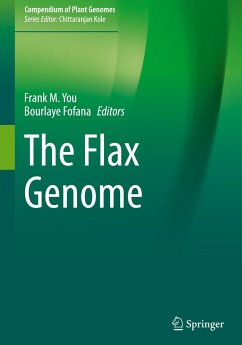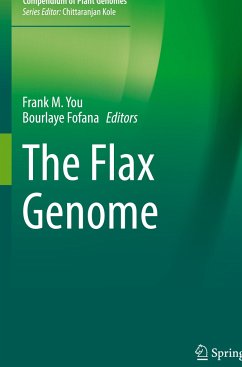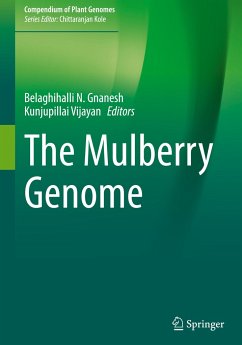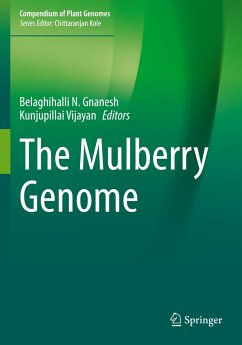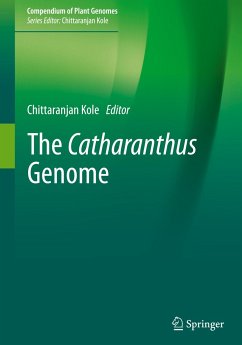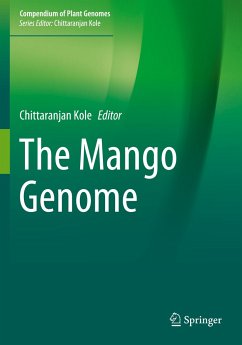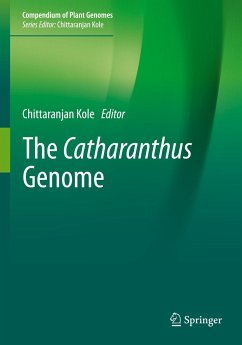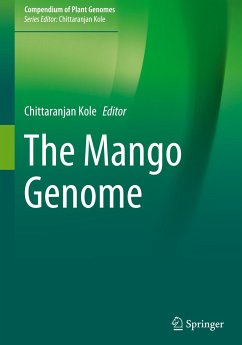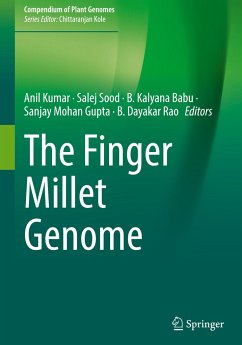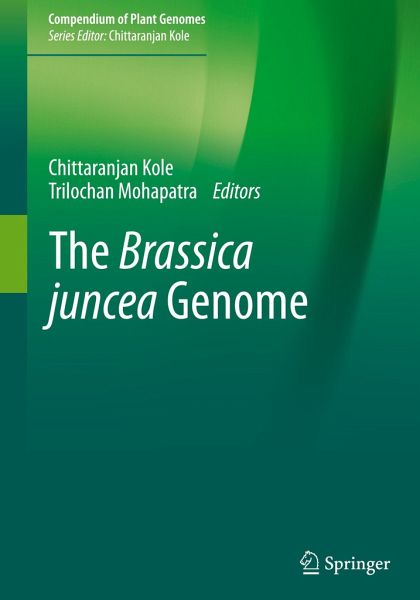
The Brassica juncea Genome

PAYBACK Punkte
83 °P sammeln!
This book is the first comprehensive compilation of deliberations on elucidation and augmentation of the genome of Brassica juncea, one of the leading oilseed crops of the world, popularly called as brown mustard, Indian mustard, Chinese mustard, or Oriental mustard. It includes discussions on genepools; genetic diversity and its characterization; classical genetic and traditional breeding; basics and application of heteroploidy; techniques and applications of introgressive hybridization; in vitro culture for micro-propagation, somatic mutation, somatic embryogenesis, and somatic hybridization...
This book is the first comprehensive compilation of deliberations on elucidation and augmentation of the genome of Brassica juncea, one of the leading oilseed crops of the world, popularly called as brown mustard, Indian mustard, Chinese mustard, or Oriental mustard. It includes discussions on genepools; genetic diversity and its characterization; classical genetic and traditional breeding; basics and application of heteroploidy; techniques and applications of introgressive hybridization; in vitro culture for micro-propagation, somatic mutation, somatic embryogenesis, and somatic hybridization; genetic engineering including genetic transformation and gene silencing; and molecular genetic mapping and mapping of genes and comprehensive delineations on genome sequencing and comparative genomics; resequencing for elucidation of origin and diversity; large-scale genome analysis; plastid genome sequence; transcriptomics; metabolomics; proteomics; evolutionary genomics; role of regulatory genes in development and adaptation and their utilization in trait improvement; precise breeding for yield, quality, and resistance to biotic and abiotic stresses; and prospects of genome editing.





